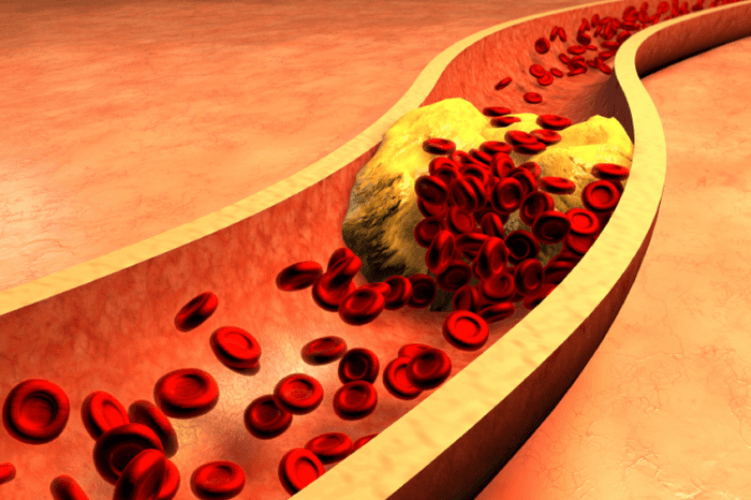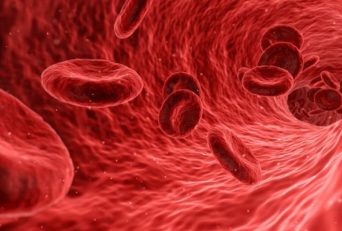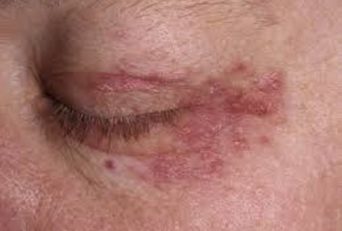In layman’s language, hyperlipidemia is referred to as high cholesterol. It basically means high fat and cholesterol in the blood. The amount of cholesterol in the blood depends upon the interaction of a person’s genetic makeup. It also depends on the other environmental factors affecting the person. This problem has become very common all over the world. Thus, this article will help you analyse the types, causes, preventive techniques and home remedies which can help to get rid of hyperlipidemia.
Table of Contents
Home Remedies To Get Rid Of Hyperlipidemia
Some of the major home remedies which have proved to be beneficial to get rid of hyperlipidemia1are mentioned below:
1. Coriander Seeds
They help to lower the level of bad cholesterol and triglycerides. They also have hypoglycemic effects and are extremely useful in diabetes management.
How to use:
a) Add 2 teaspoons of coriander seed powder to a cup of water.
b) Boil the mixture and strain it.
c) Drink this twice a day. You may add milk, sugar, and cardamom to it for some flavour and use it as a replacement for tea.
d) Further, if you do not have coriander powder then simply use coriander seeds. You may also dry roast them and then grind them to make powder.
2. Onions
Red onions are beneficial in reducing high cholesterol. They help reduce LDL and elevate good cholesterol levels. Thus, they also help in lowering the risk of a heart disease.
How to use:
a) Mix a teaspoon of onion juice and honey each. Drink this once daily.
b) Or, add one finely chopped onion and a bit of pepper to 200 g of buttermilk. Consume this on a regular basis.
c) Try to include more of onion, ginger, and garlic in the diet.
3. Indian Gooseberry
Indian gooseberry is as a natural hypolipidemic agent. This basically means that it promotes the reduction of lipid concentrations in the blood. It has also been proved that this fruit has anti-hyperlipidemic, and hypolipidemic effects.
How to Use:
a) Mix a teaspoon of amla powder, or dried and powdered amla, in a glass of warm water.
b) Drink this mixture daily in the morning preferably on an empty stomach.
4. Apple Cider Vinegar
This helps lower your cholesterol and triglyceride levels. In addition, this home remedy is used for many ailments including:
a) acid reflux
b) high blood pressure
c) respiratory infections
How to Use:
a) Mix a teaspoon of apple cider vinegar in a glass of water.
b) Drink this 2-3 times a day for a month for best results.
c) You may gradually increase your intake also. Yet, if you do not like the taste of ACV, you can try to have it by mixing it with orange juice or grape juice. This helps to enhance its flavour.
Note: You can also prepare fresh apple cider vinegar at home.
5. Orange Juice
Drinking three cups of fresh orange juice every day greatly helps in reducing the blood cholesterol levels naturally. This is because it has quantity of vitamin C, folate, and flavonoids.
A slight tip is that orange juice fortified with sterols is considered to be even better. Try, to drink at least two glasses of sterol-fortified orange juice every day.
6. Coconut Oil
Coconut oil is considered a greatly advantageous home remedy for high cholesterol. Irrespective of it being a saturated fat, it contains lauric acid that helps to increase HDL and thereby improves the LDL/HDL ratio.
Try to add some amount of edible coconut oil to your diet. Try not to use refined or processed coconut oil.
7. Oatmeal
Usually people tend to enjoy a bowl of oatmeal. It is also interesting to know that they are extremely helpful in reducing cholesterol levels. Further, it also has soluble fiber and reduces the incorporation of cholesterol.
1 ½ cups of cooked oatmeal contain approximately 3 grams of soluble fiber and beta-glucan.
You may also add some fruits and nuts to make the whole meal better in taste.
8. Fish Oil
Fish oils and fatty fish like mackerel, tuna, trout, bluefish, sardines, are packed with omega-3 fatty acids. These acids help to lower triglycerides and prevent heart disease.
Try to consume about 4 grams of fish oil every day. If you are a vegan, then you may supplement this with ground flaxseeds, which is also rich in omega-3 fatty acids.
9. Red Yeast Rice
This contains compounds like monacolins that slow down cholesterol synthesis. This helps to lower cholesterol. For many years it has been used by the traditional Chinese for many medicinal purposes.
For high cholesterol, start taking 1200 – 2400 mg of this supplement twice daily. Yet, be cautious while taking these supplements. This is because their proper dosage and side effects are quite ambiguous.
Therefore, it is best to consult your doctor before consuming the same. Further, try to avoid this supplement if you are either pregnant or breastfeeding.
10. Nuts
Nuts such as mentioned below are extremely useful in controlling high cholesterol levels in the body. This is because they are rich in fibre and plant sterols. The nuts are:
a) Walnuts
b) almonds
c) peanuts
d) hazelnuts
e) pistachios
f) pecans
g) some seeds
However, try not to over-do the consumption of these nuts.
11. Niacin
Niacin, or Vitamin B3, helps to remove and reduce LDL cholesterol. Further it has also been proved that this helps to improve diabetic conditions. It is advised to take 1,500 milligrams per day.
12. Milk Thistle
Milk thistle has the power to help lower cholesterol levels and inflammation. Further it also aids in cleansing the blood and stops oxidative stress damage inside the arteries. You may consume 50-150 milligrams of milk thistle every day for hyperlipidemia. Yet, confirm the dosage with your doctor once.
13. Chromium
Higher chromium levels mean that you have healthy arteries and good cholesterol level. You may take 200-1,000 micrograms every day for the treatment of this problem.
14. Garlic
Garlic lowers LDL cholesterol levels and side by side increases HDL cholesterol levels. It is also used as a food supplement to help reduce high cholesterol symptoms. This lowers the risk of coronary heart disease.
15. Exercise
Exercising on a regular basis will surely help in reducing the cholesterol levels in the body. Try to focus on weight training and cardio to support a healthy blood lipid profile2.Try to do 30-60 minutes of draining activities per day.
16. Lose Weight
Obesity is also a major cause of high cholesterol levels. A weight loss of even 10% may aid in lowering the risk of hyperlipidemia and its relevant symptoms.
17. Stop Smoking
Smoking cigarettes is directly proportional to an increase in bad cholesterol. It further adds up the triglycerides in the body. To help manage hyperlipidemia, it’s imperative to quit smoking.
18. Use Essential Oils
Lemongrass and lavender essential oil may also help lower cholesterol levels. They help the body to sustain the good cholesterol level and reduce the LDL cholesterol. Further, lavender oil helps to decrease emotional stress which also leads to lower cholesterol levels. You may also use cypress essential oil to perk up circulation or rosemary oil to sustain cardiovascular health.
Super Foods That Heal
Apart from the above-mentioned remedies and foods provided, following is a list of 2 major food products which you may additionally consume for the same purpose:
a) Olive oil as it has some major anti-inflammatory compounds which help to boost antioxidants and HDL.
b) Herbs like basil, rosemary and turmeric. They contain antioxidants which are cardio-protective and thus help to lower cholesterol naturally.
Diet To Avoid for a Hyperlipidemia Patient
Avoid consumption of the following food products to prevent hyperlipidemia:
- Sugar and refined grain commodities as they arouse the liver to produce more cholesterol.
- Packaged and processed foods which are high in either salt or sugar.
- Hydrogenated fats as they are pro-inflammatory and increase cholesterol.
- Trans fats as they increase inflammation and risk of cardiovascular disease.
- Conventional dairy products as pasteurization and homogenization of dairy products tend to deteriorate their chemical structure. It destroys nutrients and results in the formation of free radicals.
- Factory-farmed animal products as they provide with very dangerous and unhealthy animal meat.
- Too much caffeine increases the cholesterol level.
- Too much alcohol a sit stimulates the liver to make more cholesterol. Thus people having high levels of triglycerides should particularly avoid alcohol at any cost.
Types of Hyperlipidemia
Initially it is important to understand the types of hyperlipidemia as there are various types depending on a host of factors3.
1. Primary Type I
Type I hyperlipidemia is quite uncommon as per “Harrison’s Principles of Internal Medicine” by Anthony S Fauci. It is also referred to Buerger-Gruetz syndrome. This disorder intends to cause high chylomicrons, which are the proteins that carry fat from the small intestine to the liver. This may lead to abdominal pain, pancreatitis, and a large liver and spleen.
2. Primary Type II
Type II hyperlipidemia is divided into type IIa and type IIb. Type IIa is called familial hypercholesterolemia. It tends to raise the bad cholesterol level in the blood and lipoproteins also increase in the blood. This causes fat deposits under the skin and around the eyes. Further, type IIb is called familial combined hyperlipidemia. This can be treated medically and with dietary control.
3. Primary Type III
Type III hyperlipidemia is an uncommon disorder. Its scientific terminology is familial dysbetalipoproteinemia or broad-beta disease. It carries a significant risk of heart disease. It may be treated with medicine and diet.
4. Primary Type IV
Type IV is also known as familial hyperlipidemia. Herein the cholesterol levels tend to be normal but the fat level is elevated to a very high degree.
5. Primary Type V
Type V is another atypical type that is characterized by high levels of chylomicrons. It is also called endogenous hypertriglyceridemia. Further, it may additionally lead to pancreatitis.
Causes of Hyperlipidemia
Once we are aware of the types of this problem it is important to determine and examine the causes of this problem. To understand the causes it is eminent to understand that there are two types of cholesterol. They are: LDL (bad cholesterol) and HDL (good cholesterol). LDL builds up in the artery walls, making them hard and narrow. The major cause of hyperlipidemia is excess of LDL cholesterol in the blood. Another cause is not having enough HDL cholesterol which helps to clear out the LDL.
The following lifestyle choices can help raise the bad cholesterol level in the body:
- eating foods with saturated and trans fats
- eating animal protein, like meat and dairy
- not getting enough exercise
- not eating enough healthy fats
- obesity
- large waist circumference
- smoking
- drinking alcohol excessively
Abnormal cholesterol levels may be found in people with the following health conditions, like:
- kidney disease
- diabetes
- polycystic ovary syndrome
- pregnancy
- underactive thyroid
- inherited conditions
Further, the cholesterol levels may also get affected by the ingestion of certain medications like:
- birth control pills
- diuretics
- some depression medications
Symptoms of Hyperlipidemia
Once we are aware of the causes of this problem it is imperative to know the symptoms of hyperlipidemia. Usually most people are unable to notice and tell the symptoms of this problem. This is because the changes caused in the body due to this problem cannot be felt but will be noticed only at a later stage. However some compounding factors such as the following can show or prove that you are suffering with hyperlipidemia:
a) High blood pressure
b) Frequent migraines
c) Stroke
d) Heart attack
How is it Diagnosed?
As stated above, this problem does not have any clear symptom. Thus, the only way to diagnose this problem is through a blood test namely lipid panel or a lipid profile. This enables to the doctor to determine the cholesterol level in the body. Ideally, your blood report will show the levels of:
- total cholesterol
- low-density lipoprotein (LDL) cholesterol
- high-density lipoprotein (HDL) cholesterol
- triglycerides
Before taking the test, you may have to fast for 8-12 hours. So ensure that you avoid eating or drinking everything before the test, apart from normal water. It is also mandated that generally a cholesterol level of 200 mg per deciliter is considered high. Thus, if your cholesterol level reflects more than that then you really need to get checked for hyperlipidemia or other diseases.
How to Prevent Hyperlipidemia
You are always welcome to make amends and changes in your lifestyle to prevent plaque build up in the arteries. the below-mentioned some changes will help you prevent hyperlipidemia under all circumstances:
i. Exercise several days per week.
ii. Eat a diet which is low in saturated and trans fats.
iii. Include tons of fruits, vegetables, nuts, whole grains, and fish into your diet.
iv. Stop consuming red and processed meats such as bacon, sausage, and cold cuts.
v. Drink skim or low-fat milk.
vi. Maintain a healthy weight.
vii. Eat lots of healthy fats such as avocado, almonds, and olive oil.
Frequently Asked Questions
After going through the entire article it is obvious that you all must have faced some doubts. Mostly all the frequently asked questions have been mentioned herein and hopefully they will be helpful to you:
1. What’s the Difference Between “Good” and “Bad” Cholesterol?
HDL cholesterol is known as “good” cholesterol. It removes the bad cholesterol out of your blood and stops it from entering into the arteries. On the contrary LDL cholesterol is known as bad cholesterol. This is because it leads to the build up of plaque on the walls of the arteries. This increases the risk of getting cardiovascular diseases and other related diseases.
2. How Much Cholesterol Is Too Much?
Doctors recommend that your total cholesterol should stay below 200 mg. Here is the breakdown:
| Total Cholesterol | Category |
| Less than 200 | Desirable |
| 200 – 239 | Borderline high |
| 240 and above | High |
An LDL level of 190 or above is considered to be a serious risk factor for problems like heart attack, stroke, and clogged arteries.
HDL cholesterol protects against heart disease. Thus, a level less than 40 is considered to be extremely low and you should make amends to increase it under all circumstances.
3. Why Should I Be Concerned About Cholesterol?
Too much cholesterol in the body means that you may be exposed to a lot of cardiovascular diseases. Some of them are specified herein:
- a) Chest pain
b) Heart attacks
c) Strokes
All the above-mentioned problems happen due to the excessive build up of cholesterol in the arteries. This proves to be a major problem. This is because they are responsible for the blood to travel to the heart. Try introducing cholesterol reducing food in you diet to lead a healthy life.
It is hoped that this article has cleared all your doubts pertaining to hyperlipidemia and the remedies to get rid of the problem. All the aspects mentioned in the article are doctor recommended. Yet, it is advised that first consult your physician before applying anything mentioned in this article. This is because everybody’s body type is different.
References





